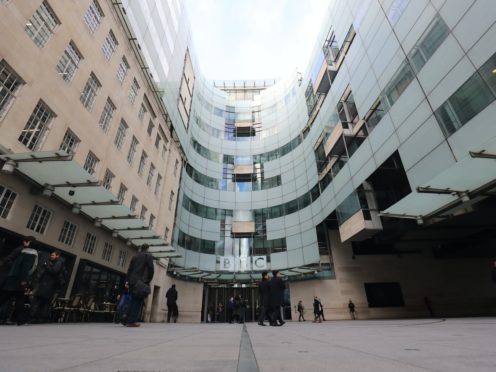BBC Three could return as a linear channel as part of the broadcaster’s efforts to focus on younger audiences – with BBC Four airing more repeats.
In its annual plan, the BBC also said flagship channel BBC One will invest in “more British programmes targeted at younger audiences”.
The corporation has denied it plans to axe BBC Four but suggested the high-brow channel could air fewer original programmes.
“BBC Four will increase focus on bringing together collections of the most distinctive content from the BBC’s rich archive,” it said.
“Arts will continue to be a centrepiece of Four.”
Bringing Us Closer – BBC publishes Annual Plan for 2020/21. Record-breaking performance but challenges ahead: https://t.co/IjMQBQWeg4 pic.twitter.com/OYA3Cq7WTf
— BBC Press Office (@bbcpress) May 20, 2020
BBC Four intends to broadcast at least 60 hours of factual originated programmes, a target it has previously surpassed.
The BBC faces an estimated £125 million of lost income this year due to the coronavirus crisis.
It has been hit by the decision to delay introducing the over-75s licence fee reform and damage to commercial operations because of the fall in the advertising market and halting of productions, it says.
The end of the licence fee has been mooted by the Government, with a threat to turn the BBC into a subscription service.

BBC bosses will be hoping that its reach during the pandemic and efforts to provide education for school children will have turned the tide in the Government.
BBC director general Lord Hall and chairman Sir David Clementi said they had been “touched and humbled by the way people have put their trust in the BBC in huge numbers…
“As this value has become more self-evident in the last few weeks, it is more important than ever to have a proper conversation with the British public about the BBC’s next 100 years as it approaches its centenary,” they said.
“The British public own the BBC, they use it more than any other provider, and they pay for it.
Expect the unexpected – a surreal theatrical adventure through an old town hall at night.
Performance Live: The Way Out. Tonight, 11pm, @BBCFour https://t.co/A3qyCGZOv9
— BBC Four (@BBCFOUR) May 17, 2020
“It is they who should have the primary voice in the debate about its future.”
The BBC is considering bringing back BBC Three as a linear TV channel four years after it went digital-only.
Since then, the digital channel has become known for hits such as Fleabag, Killing Eve, This Country and Normal People,
The plan also says that the best BBC Four content will now also be broadcast on BBC Two, giving the programmes “a bigger shop window”.
How ridiculously perfect is this picture that was taken on the set of #NormalPeople?
📷from @DaisyEdgarJones pic.twitter.com/PYuziH4fsD
— Normal People (@NormalPeopleBBC) May 18, 2020
Outside the UK, BBC Four could become a “global subscription service”.
Amid competition from streaming services like Netflix, the BBC plans to double the amount it spends on commissions for BBC Three – from around £30 million-£40 million to around £80 million – over the next two years.
Last year, broadcasting watchdog Ofcom warned that the BBC was at risk of losing “a generation of viewers” if it could not engage a younger audience.
The BBC also wants to change BBC News online to “promote and amplify fewer, but more relevant and important, stories.”
It suspended plans to cut jobs in BBC News because of the demands of covering the coronavirus pandemic.
It also said it will move BBC staff and resources out of London in a bid to reach the whole country.
The plan says: “As Britain emerges from the crisis, we will want to do much more for the whole UK, shifting resources, staff and services out of London and South East towards the Midlands and the North of England, particularly in our local and regional services.
“Over time, we will be commissioning more content outside London and developing a new tech hub in Newcastle.”
